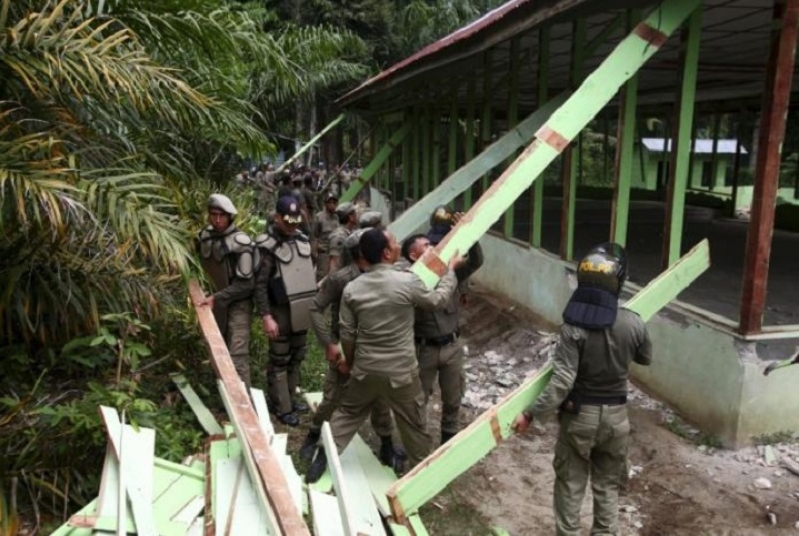
A Protestant church in Indonesia has been ordered to cease all religious activity because it apparently lacks a building permit.
The order was handed down by Tri Kurniadi, the mayor of South Jakarta through a letter addressed to the church in Pasar Minggu saying the building needs to be closed down for not having the required building permit.
The mayor explained that although the church had an Izin Mendirikan Bangunan (IMB) or building permit, it was for an office and not for a church. He added the order was prompted by protests from Pasar Minggu residents, who opposed the construction of the church building.
Just less than two weeks ago, a similar protest erupted over the renewal of the building permit for another Protestant church building in Makassar, South Sulawesi that is attended mostly by ethnic Toraja Christians.
Opposition stemmed from members of the radical Islamist organization Islamic Defenders Front and some residents, who claimed the church did not have all the required papers to have its permit renewed.
FPI also said the local residents did not express their approval for the church’s renewal of building permit.
"The presence of the Church in this area does not have the approval of most of the Muslim population,” Aramna Rahman, FPI spokesman, said. “Residents said they never gave permission for the renewal of the project. "
Local politician Hamzah Hamid said FPI did not have a right to protest over the issue. Hamid also said the group’s activities “stain the good reputation of Islam.”
Rev. Daur Sanpe Rurun responded to the accusations by saying the church has obtained the necessary papers for the renewal of their building permit, adding that the mayor himself approved the construction.
"Do not worry about permits and legal papers because, after we laid the first stone of the church, the mayor visited the site and officially recognised the project,” he said.
In Indonesia, building a church involves the complicated process of satisfying all the required papers. To acquire a church building permit, one must obtain 60 signatures from people of a different faith, plus permission from local authorities. In some cases, it could take five to 10 years to complete the requirements.
Satisfying the requirements is still not an assurance that the permit will be released, as authorities can still deny a church’s application even if all the requirements are in, according to Human Rights Watch.
Indonesia is not among the top countries where Christians are severely persecuted. However, religious minorities still face attacks from radical Islamists that could sometimes turn violent, Open Doors USA said.







